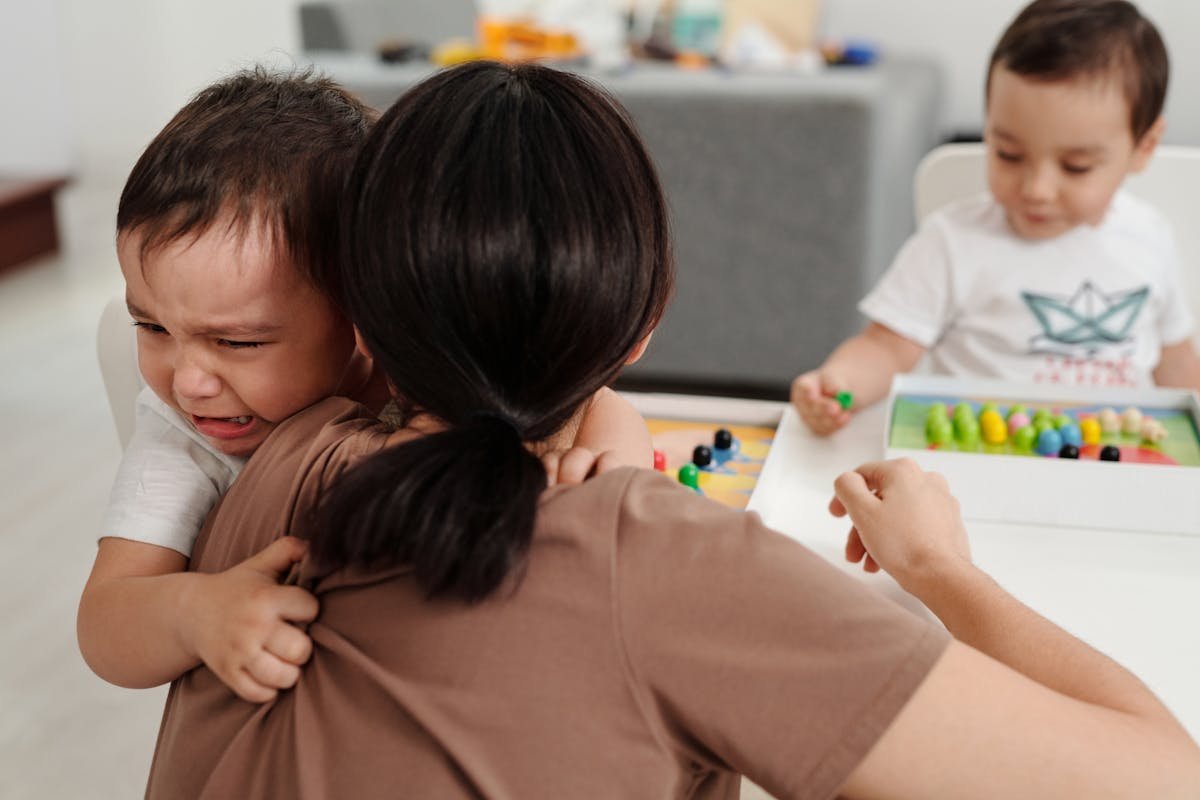When we talk about childhood education, there is much discussion about the cognitive developments that occur during this phase. However, sometimes another equally important factor is overlooked: children’s emotional development.
This involves the acquisition of skills related to controlling and expressing feelings based on lived experiences. This is how a person’s personality is constructed, which occurs in a marked way during this period, due to the child’s cognitive flexibility and sensitivity.
Want to better understand the importance of children’s emotional development and what to do to stimulate it? Keep reading!
Table of Contents
Why is childhood emotional development so important?
Although somewhat neglected by some people when it comes to child education , children’s emotional development has great relevance in an individual’s life in the long term. Check out the reasons that explain this.
Attenuation of selfishness
Selfish attitudes are common when there are flaws in children’s emotional development. This is demonstrated by situations in which children do not accept sharing objects — such as toys —, spaces or even people.
On the other hand, when the process is well-worked from an early age, ethical and moral values are passed on to children. This way, they begin to understand that they are not alone in the world, to respect each other’s space and to share when necessary, which impacts the way they relate to each other in the social environment.
Acceptance of changes
It is not uncommon to see children displaying bad behavior, crying or screaming, when faced with unwanted changes. These include situations such as moving house or school, being separated from friends, having new people join their group of friends , among others.
Therefore, it is essential to develop the emotional side, so that your child learns to accept events like these without great suffering, since emotional intelligence is worked on in children’s emotional development. It teaches children to recognize what they are feeling and to experience their feelings, but in a healthy way, without letting them affect them disproportionately or for too long .
Ability to listen more
A person who did not have their emotional side well developed in childhood may have greater difficulty listening to others, whether to receive advice or to learn a different point of view. This occurs because, in these situations, selfishness or a lack of awareness of differences speaks louder.
Therefore, developing emotions helps children to have a greater ability to listen. They will learn about the existence of other people, understanding that they must respect their feelings and opinions, even if they feel upset.
Development of empathy
In addition to simply listening to others, sometimes life requires us to put ourselves in someone else’s shoes, and this happens naturally when learned from an early age. This happens exactly at the stage when the child’s emotional aspect is developing.
It is at this time that she is most susceptible to external influences, absorbing the feeling of solidarity more easily and acting in a way that does not harm or restrict the rights of other people.
How can parents help children’s emotional development?
Because they spend time with their children from an early age, parents are primarily responsible for their emotional development. After all, they are the first people they interact with. In this sense, children should be taught to identify and respect other people’s feelings.
Furthermore, they must understand what they themselves feel and how to channel emotions into something productive. For this, dialogue is the best strategy. It is therefore necessary for parents to always say what they are feeling, so that children learn to identify their feelings and deal with them.
Therefore, you must have understood that children’s emotional development deserves attention. It involves teachings relevant to understanding and controlling emotions, and facilitates coexistence in society.
These issues will have a major impact on your children’s adult lives, as they determine how they will react to frustrations and achievements, which are inevitable in their personal, academic or professional lives. Therefore, addressing this issue with due care means being concerned about the person they will be in the future.








